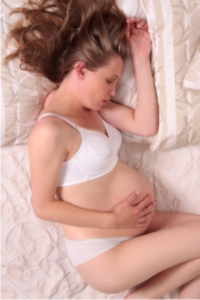 MONDAY, April 29 (HealthDay News) -- With the number of home births rising, the American Academy of Pediatrics has issued a policy statement on the practice that includes a recommendation that there be a caregiver who's present solely to take care of the newborn.
MONDAY, April 29 (HealthDay News) -- With the number of home births rising, the American Academy of Pediatrics has issued a policy statement on the practice that includes a recommendation that there be a caregiver who's present solely to take care of the newborn.
"Babies deserve the best care they can get," said Dr. Kristi Watterberg, lead author of the statement and a professor in the division of neonatology at the University of New Mexico. "And we need to support women wherever they choose to give birth."
There are a number of reasons women may choose to give birth at home, according to background information in the statement. They may wish for a more family-friendly setting, increased control of the birthing process, fewer medical interventions and lower costs. The rate of home births is still under 1 percent in the United States, but it is growing, according to the policy statement.
A recent report from the U.S. Centers for Disease Control and Prevention found that the number of home births jumped 20 percent between 2004 and 2008. More than 28,000 babies were born at home in 2008, which was the highest number of home births since 1990.
 Home births aren't well supported by the medical community. Various state laws and regulations can make a home birth even harder to achieve. There also may be a lack of well-trained and willing caregivers, or support in case of an emergency. Geography can also present a problem. Travel times greater than 20 minutes to medical care have been linked to an increased risk of complications, including death of the baby, according to the policy.
Home births aren't well supported by the medical community. Various state laws and regulations can make a home birth even harder to achieve. There also may be a lack of well-trained and willing caregivers, or support in case of an emergency. Geography can also present a problem. Travel times greater than 20 minutes to medical care have been linked to an increased risk of complications, including death of the baby, according to the policy.
Some studies have suggested that home births in the United States are linked to a twofold to threefold higher risk of neonatal death. But Watterberg said a study done in British Columbia, where there's a more integrated system that supports mothers birthing at home, found no increased risk of neonatal death. "We need better research," said Watterberg.
However, because the rate of home births is increasing, and because the academy wants to provide a "professional, supportive interaction" with expectant mothers, Watterberg said the group developed its new policy. The AAP recommends the following factors for a mother considering a home delivery: